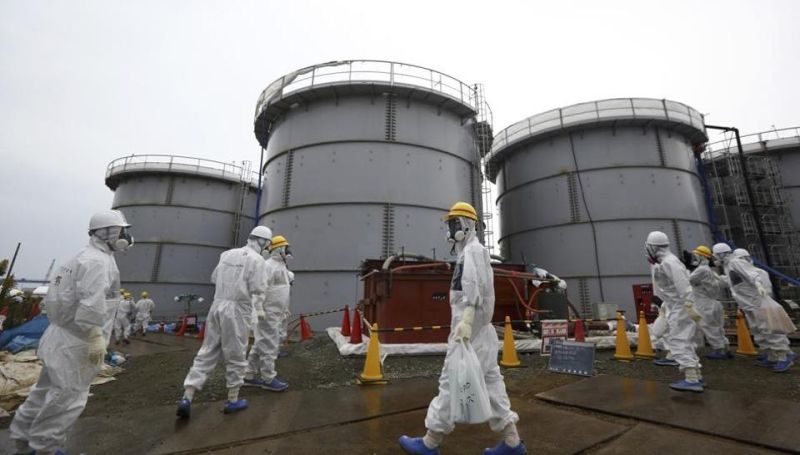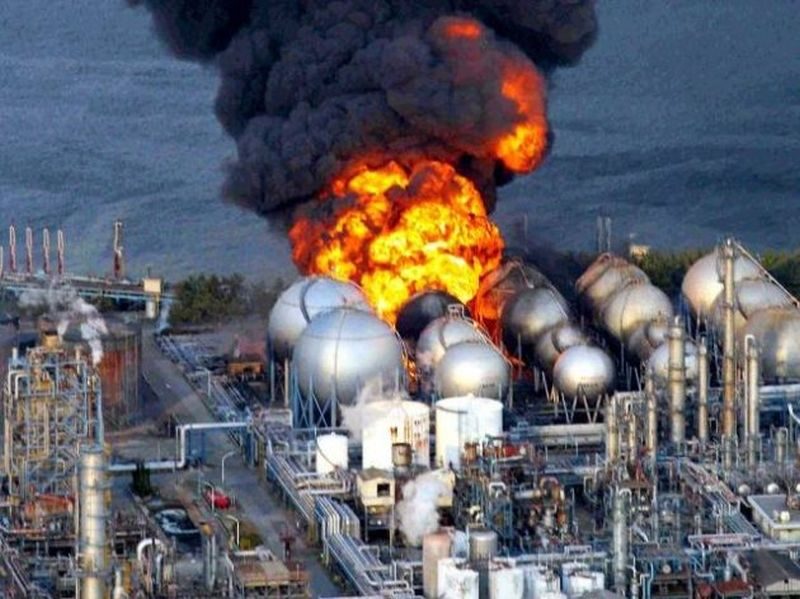The shocking nuclear accident at Fukushima Daiichi in 2011 spread widespread fear in the entire world. The nuclear radiation leak brought home the unpleasant truth that we are always very close to an extinction event – due to the numerous nuclear reactors all over the world. Just a small accident might spell the end of Earth, Many people have now termed the Fukushima event as the Fukushima mass extinction event. Here’s a closer look at the Fukushima disaster and its implications for us now in 2018:
Examining the Fukushima mass extinction event
 Image Source : hindustantimes.com
Image Source : hindustantimes.com
There was a huge outcry following the Fukushima mass extinction event. People all over the world were waiting with bated breath to see how the Japanese government would control the radiation levels which reached an all-time high. The melted nuclear fuel had come into contact with the underground water, and the melted nuclear core spread over a huge area. The Fukushima disaster gave rise to the fear that the melted core which polluted the waters of the Pacific ocean would end up destroying the marine environment in the area, and slowly spread to other parts of the ocean. A whopping 600 tons of melted core was unaccounted for, and there was ‘uncontrollable fission’ under it.
Fukushima event implications in 2018
It has been seven years since the Fukushima mass extinction event – which the media said was equal to or worse than the Chernobyl disaster. But unlike the Chernobyl disaster, there were no human deaths. More people in Japan have died due to tsunami and earthquake than radiation. But, the media relentlessly placed the blame for any marine disasters in the Pacific Ocean on the Fukushima disaster. Here are some stories which have been linked to the Fukushima extinction level event, but which are probably independent of the Fukushima event:
Fin whales stranded on the Alaskan beach
 Image Source : indianexpress.com
Image Source : indianexpress.com
Whether its fish tumors or mutant eels, everything is the fault of the Fukushima disaster according to a certain section of the media. One of the latest additions links the ‘viral’ story of some fin whales found stranded on the shores of Alaska. The post was shared by thousands of users on various social media. But it is filled with many inaccuracies. The expert quoted in the post did not link the event to the Fukushima mass extinction event at all. The scientists tested the samples from the whales, as well as other mammals for radiation – including Cesium 137. The radionuclides’ levels were not more than that found due to exposure in open waters. The scientists have said that they have not discovered an example of radiation due to Fukushima.
Shark tumors and fish ‘cancer’
The salmon in the photo does have tumors, but they are benign tumors and not cancerous. The milk-type liquid within the cysts houses parasites within the muscle tissues of the salmon. The image was taken from a website that had nothing to do with Fukushima radiation. The article was actually about a study by scientists who had discovered that sharks do get cancer, and this was not linked to Fukushima.
Sperm Whale Stranding in the UK
The death of five sperm whales stranded in the UK was also pinned on Fukushima radiation. But, these whales did not die due to radiation, or else there would have been instances of similar deaths of other species.
The humongous sea monster
You may have also seen this image of a sea monster fish. In fact, this is a healthy wolfish, which is found off the coast of Japan. The sea monster has not been created by any mutant genes due to the Fukushima radiation. According to scientists, mutant fish are more likely to reduce in size, rather than growing to fantastic sizes. The danger due to the Fukushima radiation has decreased over time, thanks to the natural decay and decomposition.
Many-armed starfish
The many-armed starfish is not a freak product of the Fukushima radiation. It’s called ‘sunflower star’, a species which is famous for having more than 20 arms.
There are many other stories floating around on the web about the horrors of the Fukushima radiation. True, many people and animals were affected by the immense amount of radiation that was released, but radiation has decreased with the passage of time. There are many who spread false stories, so you have to be careful whenever you come across some wild imaginative writing. These take the focus away from real issues like warm temperature and plastic pollution, along with radiation too.





